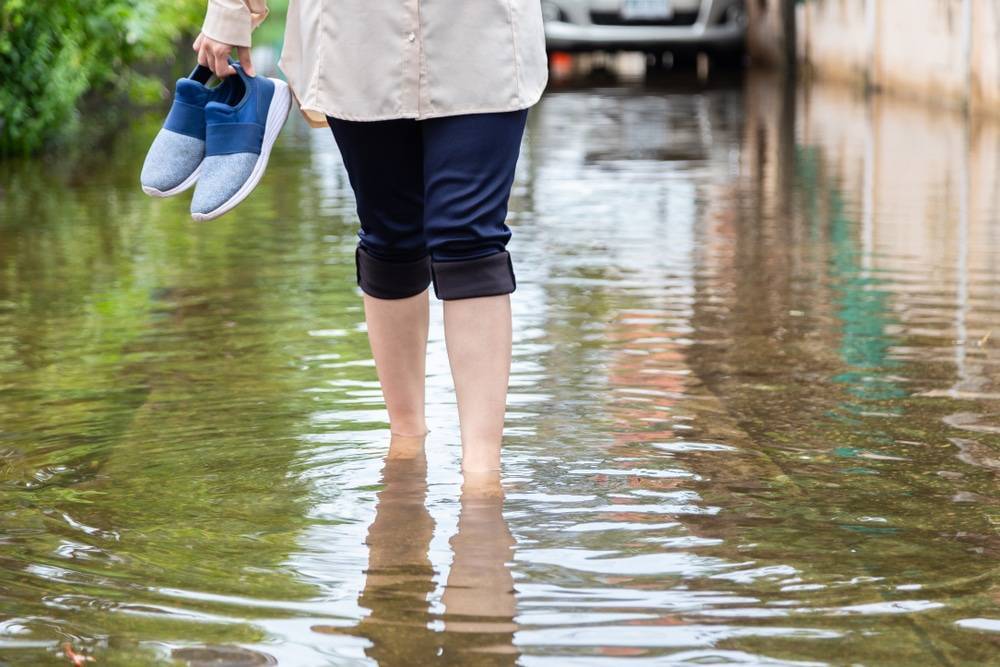The resilient communities of the Davao Region, already grappling with the aftermath of recent floods and landslides, now face a new health crisis as cases of leptospirosis surge.
The Department of Health-Davao (DOH-11) has sounded the alarm, highlighting a significant increase in leptospirosis cases compared to the same period last year, sparking worry among both residents and health officials alike.
Alarming Statistics and Regional Impact
In the month of January 2024, the Department of Health-Davao (DOH-11) recorded a concerning surge in leptospirosis cases. It showed a staggering total of 34 reported instances, tragically resulting in the loss of two lives. This alarming increase marks a substantial 48% rise from the relatively lower count of 23 cases recorded during the same period in January 2023.
The repercussions of this surge reverberate profoundly throughout the region, particularly in provinces like Davao de Oro and Davao del Norte.These areas, already dealing with recent floods and landslides, face increased vulnerability due to the ongoing health crisis. The convergence of environmental upheavals and the surge in leptospirosis cases highlights the urgent need for comprehensive intervention strategies. These strategies aim to mitigate the impact on affected communities and prevent further loss of life.
Unveiling Leptospirosis: Causes and Symptoms
Leptospirosis, a bacterial infection caused by the leptospira bacteria, thrives in the secretions of infected animals. This makes it particularly prevalent in flood-affected areas where humans and animals come into close contact. Dr. Rachel Pasion, Head of DOH RESU, underscores the risk of transmission during such encounters. He emphasises the importance of recognizing the disease’s symptoms. Initial signs may manifest as mild discomforts such as body pain, fever, and headache. However, the progression to severe symptoms includes vomiting, diarrhoea, and dehydration. This shows how urgent it is to have a proactive intervention for these cases.
Mitigating Risks and Promoting Safety
In light of the heightened risk, health experts issue stern warnings against wading through floodwaters. They cautioned against potential exposure to the leptospira bacteria, especially for individuals with open wounds susceptible to infection. Encouraging the use of protective gear such as boots, gloves, and suits serves as a critical line of defence against contamination. This exhibits the importance of prioritizing personal safety amid challenging conditions.
Bridging Gaps in Healthcare Delivery
Acknowledging the imperative of timely intervention, DOH-11 spearheads efforts to ensure widespread access to anti-leptospirosis medications. Health authorities aim to alleviate the burden of the outbreak and provide essential care to vulnerable populations in need by distributing free medications through local health centres. This includes the provision of 7,000 doses to affected provinces like Davao Oriental, Davao del Norte, and Davao de Oro.
Community Resilience in the Face of Adversity
Amid recovery and rebuilding in the Davao Region, the surge in leptospirosis cases highlights the post-disaster challenges. It is imperative to foster a culture of resilience, emphasizing proactive prevention, timely intervention, and community solidarity. These are the indispensable pillars in safeguarding public health and well-being, concerted by the efforts between health authorities, local leaders, and residents.
Navigating Towards Health and Resilience
In confronting the dual crises of natural disasters and infectious diseases, the resolve of the Davao Region is tested once again. Yet, amidst adversity, there lies an opportunity to forge stronger bonds of solidarity, resilience, and collective action. Communities can navigate the path towards recovery by heeding the guidance of health experts, embracing preventive measures, and fostering a spirit of mutual support. This ensures that no one is left behind in the journey towards a healthier, more resilient future.

